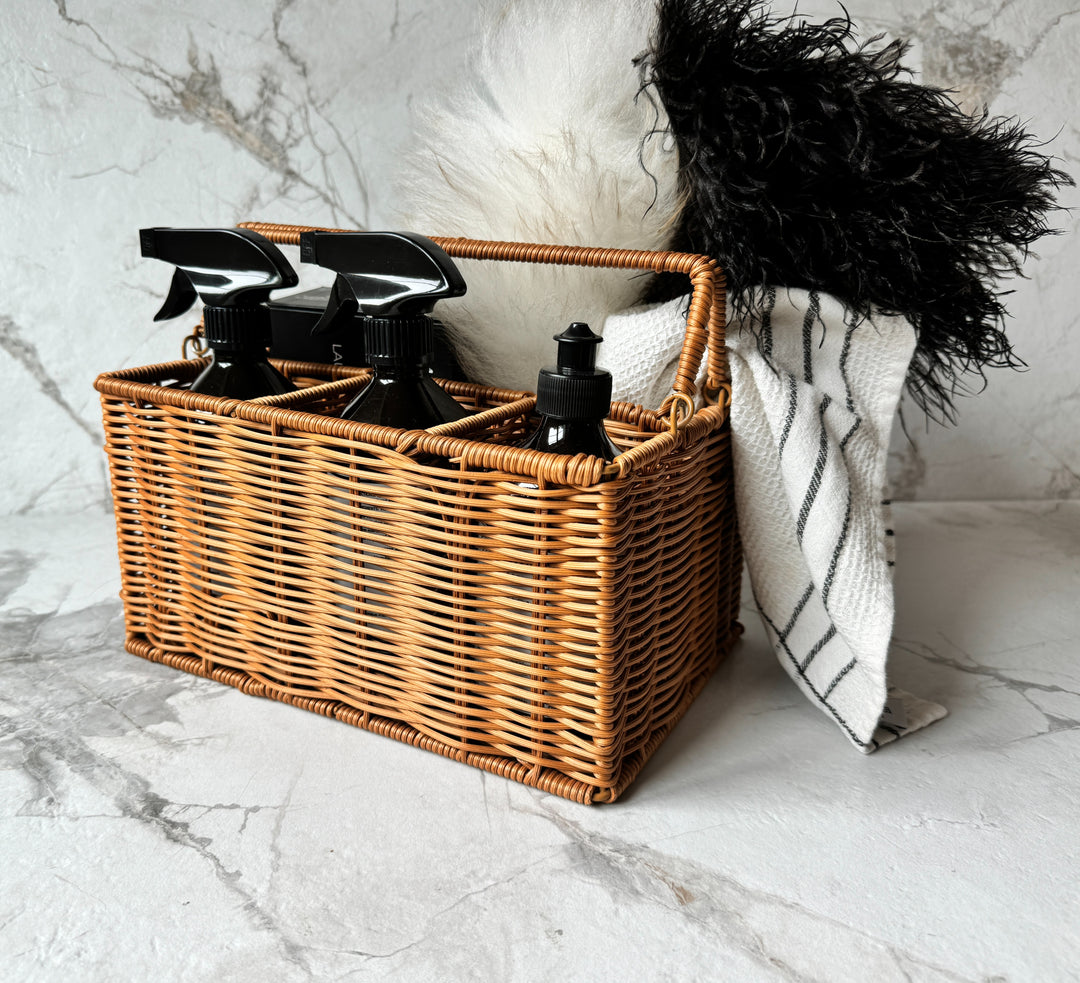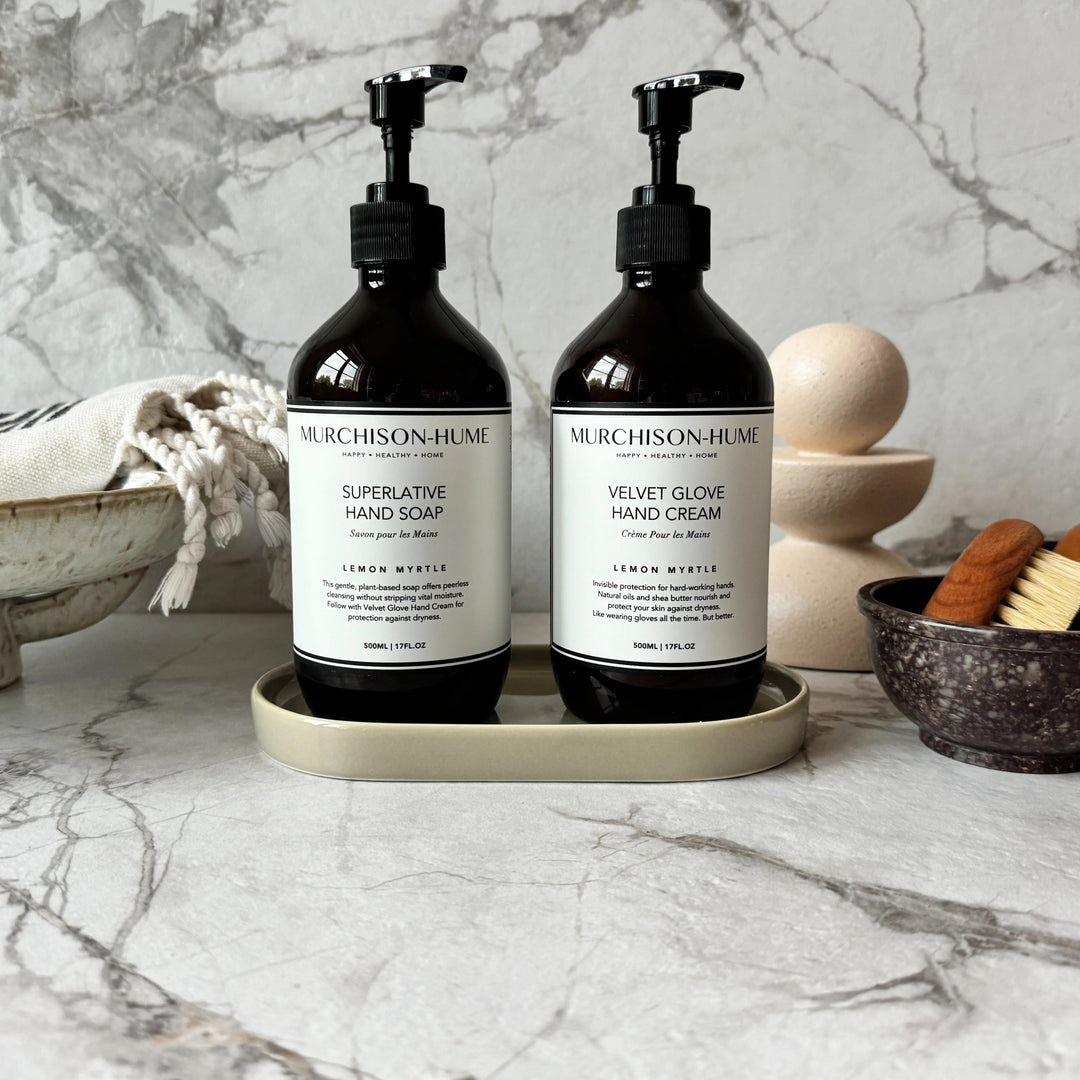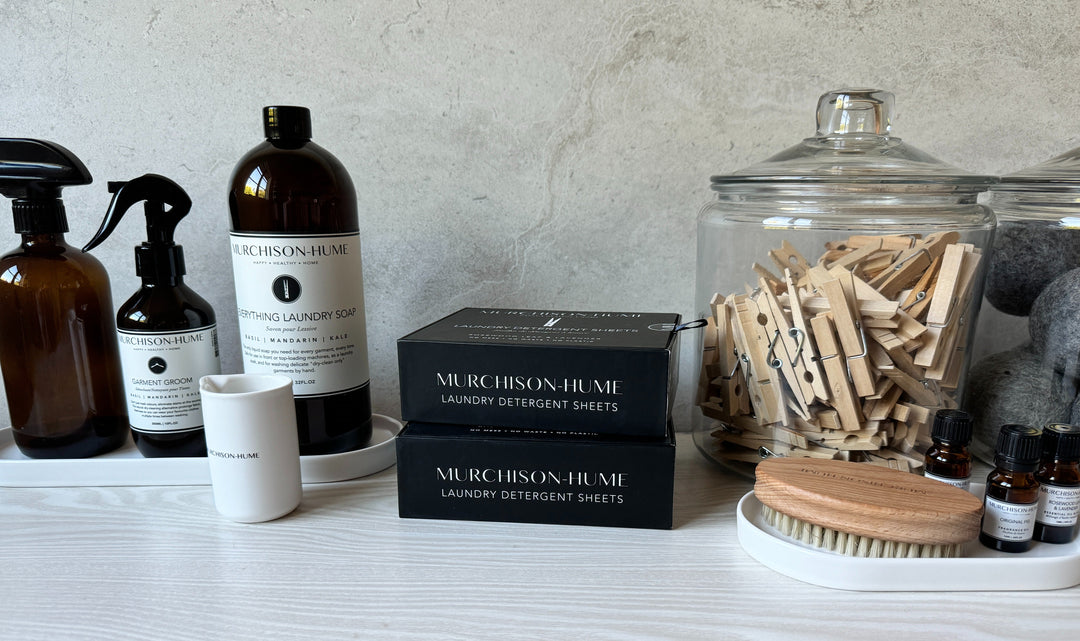They say it takes two months to make a new habit stick—but how long do you think it takes to break a bad one? Whether your vice is eating potato chips in bed or falling asleep with the TV on, it’s possible to break a bad habit. The first step, of course, is acknowledging it. While some bad habits are fairly innocuous—like, say, keeping your desk full of disorganized papers—others can lead to bigger problems over time.
Ahead, five bad cleaning habits to break now.
Keeping the “All or Nothing” Mindset
This is something many people struggle with—especially anyone that likes the feeling of a fully clean home. You look around and see a mess that’ll take hours to clean up, then resolve to tackle it all later. Instead, try to break the mess down into zones that you can handle based on how much time you have.
Getting Lazy With Laundry
No, we don’t mean letting it pile up for weeks on end—even worse is the bad habit of waiting hours (or worse, days) to transfer your wet clothes from the washer to the dryer. While leaving them damp for an hour or two usually won’t be cause for concern, Whirlpool’s Institute of Fabric Science's lead home economist said that odor, a sure sign of mildew, will start to develop after 8-12 hours. That means you’ll likely waste both time and money re-washing them—that is, of course, as long as you can get the mildew out. So until someone invents the machine that self-transfers clothes, make sure you have at least two hours blocked off to be at home to move the wet clothes to the dryer.
Leaving Dirty Dishes In The Sink
Yep—as much as we hate to say it, this is one of the top reasons why you might find ants, flies, or other unsavory vermin hanging out in your kitchen. Second only to a molding fruit bowl, leaving dirty, smelly dishes in the sink for days—or even overnight—can lead to bigger, more expensive problems later. Even if you don’t want to do a full kitchen wipe-down, get in the habit of cleaning all your dirty dishes before you head to sleep. (If you’re feeling truly lazy and have a dishwasher, you can store everything in there, including items that aren’t dishwasher-safe, until it’s time to hand-wash them. Just be sure you let other family members know so they don’t unwittingly ruin your cast-iron pan.)
Using Too Much Cleaner
Have you ever finished cleaning your windows or floors just to see a streaky, greasy-looking finish? That’s a telltale sign that you used too much cleaning product. Instead, don’t overload your mop, broom, or towel. If you realize you used too much and are left with residue, try diluting the product by adding equal parts water, then cleaning the surface again. Often, this is enough to remove the residue buildup. Depending on the surface, you may need to introduce baking soda or lemon to scrub away any additional grime.
The same goes for using dirty cleaning tools—use a fresh rag each time you clean, and be sure to take a wet microfiber cloth to items like your broom or dustpan so you’re not reintroducing old grime.
Forgetting Hard-To-Reach Places
Sure, you don’t need to clean the ceiling fan or the door frames as often as you do your coffee table or mirror. But that doesn’t mean you should let months go by without wiping hard-to-reach spots down. Instead, write down all the hard-to-reach or easily forgettable places in your home that gather grime (think: window sills, shower curtain rods, closet shelves) and make sure you set a monthly reminder to properly wipe them down. That way, you won’t be met with enough dust bunnies to fill a Western movie scene.
Of course, it might take a few weeks (or months!) to get accustomed to these new rules, but once you form the habit, you’ll forget you ever did it any other way!
xx L







